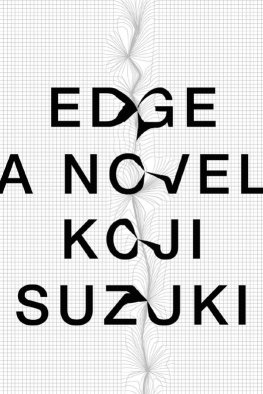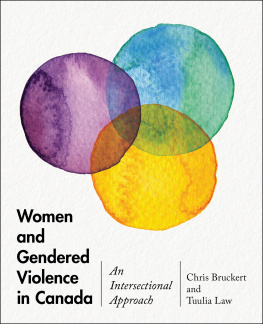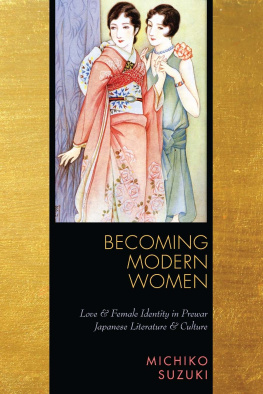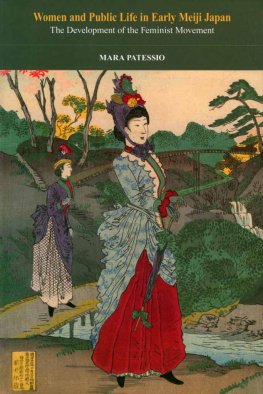Mamiko C. Suzuki - Gendered Power: Educated Women of the Meiji Empress Court
Here you can read online Mamiko C. Suzuki - Gendered Power: Educated Women of the Meiji Empress Court full text of the book (entire story) in english for free. Download pdf and epub, get meaning, cover and reviews about this ebook. publisher: University of Michigan Press, genre: Home and family. Description of the work, (preface) as well as reviews are available. Best literature library LitArk.com created for fans of good reading and offers a wide selection of genres:
Romance novel
Science fiction
Adventure
Detective
Science
History
Home and family
Prose
Art
Politics
Computer
Non-fiction
Religion
Business
Children
Humor
Choose a favorite category and find really read worthwhile books. Enjoy immersion in the world of imagination, feel the emotions of the characters or learn something new for yourself, make an fascinating discovery.

- Book:Gendered Power: Educated Women of the Meiji Empress Court
- Author:
- Publisher:University of Michigan Press
- Genre:
- Rating:4 / 5
- Favourites:Add to favourites
- Your mark:
- 80
- 1
- 2
- 3
- 4
- 5
Gendered Power: Educated Women of the Meiji Empress Court: summary, description and annotation
We offer to read an annotation, description, summary or preface (depends on what the author of the book "Gendered Power: Educated Women of the Meiji Empress Court" wrote himself). If you haven't found the necessary information about the book — write in the comments, we will try to find it.
Gendered Power: Educated Women of the Meiji Empress Court — read online for free the complete book (whole text) full work
Below is the text of the book, divided by pages. System saving the place of the last page read, allows you to conveniently read the book "Gendered Power: Educated Women of the Meiji Empress Court" online for free, without having to search again every time where you left off. Put a bookmark, and you can go to the page where you finished reading at any time.
Font size:
Interval:
Bookmark:
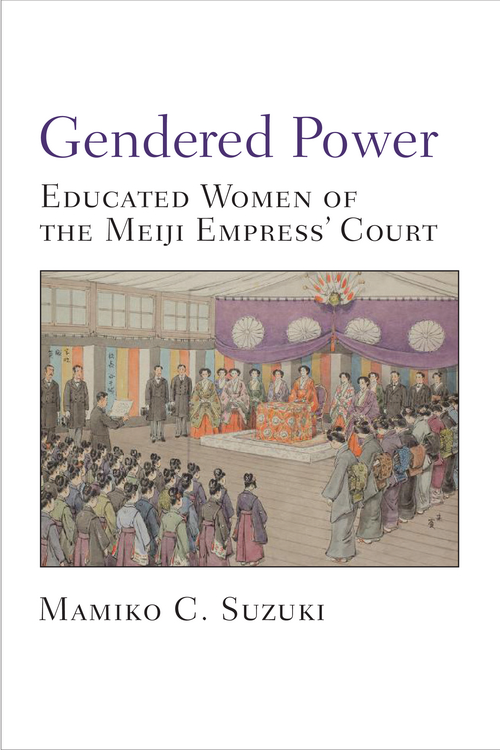
Page ii Michigan Monograph Series in Japanese Studies
Number 86
Center for Japanese Studies
University of Michigan
Mamiko C. Suzuki
University of Michigan Press
Ann Arbor
Page iv Copyright 2019 by Mamiko C. Suzuki
All rights reserved
This book may not be reproduced, in whole or in part, including illustrations, in any form (beyond that copying permitted by Sections 107 and 108 of the U.S. Copyright Law and except by reviewers for the public press), without written permission from the publisher.
Published in the United States of America by the
University of Michigan Press
Manufactured in the United States of America
A CIP catalog record for this book is available from the British Library.
Library of Congress Cataloging-in-Publication Data
Names: Suzuki, Mamiko C., author.
Title: Gendered power : educated women of the Meiji Empress court / Mamiko C. Suzuki.
Description: Ann Arbor : University of Michigan Press, [2019] | Series: Center for Japanese Studies monograph series | Includes bibliographical references. |Identifiers: LCCN 2018040650 (print) | LCCN 2018058831 (ebook) | ISBN 9780472124169 (E-book) | ISBN 9780472073979 (hbk : alk. paper) | ISBN 9780472053971 (pbk : alk. paper) | ISBN 9780472124169 (ebk)
Subjects: LCSH: Women intellectualsJapanHistory. | WomenJapanSocial conditions. | WomenEducationJapanHistory. | JapanIntellectual life1868 | Shoken, Empress, consort of Meiji, Emperor of Japan, 18501914. | Women and literatureJapanHistory.
Classification: LCC HQ1762 (ebook) | LCC HQ1762 .S9725 2019 (print) | DDC 305.40952dc23
LC record available at https://lccn.loc.gov/2018040650
Page v For Akira, Kaoru, Hiromi, and Chaitanya
For the completion of this book I owe thanks to numerous friends, colleagues, and family members. I am deeply indebted to my dissertation committee. My chair, Norma Field, supported my scholarly development and inspired me to assert my voice as a student and as a researcher. Susan Burns urged me on in my exploration of Meiji gender issues and encouraged me to persevere as a scholar. Michael Bourdaghs was a generous advisor who provided invaluable insight and support. The courses I took with Tetsuo Najita and Bill Sibley prepared me to tackle Meiji-period materials.
I am also grateful to the late professor Kan Satoko at Ochanomizu University, who provided unwavering enthusiasm and shared generously of her extensive knowledge of Meiji womens writing. I owe much also to Professors Sally Hastings, Margaret Mitsutani, Christine Marran, Rebecca Copeland, Tim van Compernolle, and Seki Reiko for paving the way for research in the writings of Meiji women and for advice and insight along the way. Harumi Sanpei helped me immensely in deciphering Shens kanbunmyaku nikki.
My research in Japan was made possible with grants from the Fulbright Commission, the Center for East Asian Studies, and the Japanese Committee at the University of Chicago. Subsequent research trips to Japan to collect materials at the National Diet Library, the Jissen University Shimoda Utako Archives, and the Imperial Household Public Archives were funded with a University of Utah University Research Committees Faculty Research Fellowship, a Northeast Asia Council Japanese Studies Grant, and multiple University of Utah Asia Center Travel Grants and College of Humanities International Travel Grants.
Page x Three anonymous readers were generous in their comments, and their suggestions helped to improve the project. I thank Christopher Dreyer, editor at the University of Michigan Press, for his encouragement and patience.
I am deeply indebted to fellow graduate students and to postdoctoral researchers at the University of Chicago: Nicholas Albertson, Brian Bergstrom, Heather Bowen-Struyk, Heekyoung Cho, Mika Endo, Fumiko Jo, Anup Grewal, Patti Kameya, Hyun-jeong Lee, Jaeyon Lee, Tanya Maus, Scott Mehl, Miho Matsugu, Tomoko Seto, Katy Tanaka, Tomomi Yamaguchi, and many others whose encouragement, support, intellectual engagement, and example sustained me throughout my graduate career. Thanks also to my Chicago senpai Amanda Seaman, Alisa Freedman, and Sarah Frederick for their encouragement and advice.
At the University of Utah, I received an invaluable amount of support and mentorship from my colleagues Wesley Sasaki Uemura, Shoji Azuma, Richard Chi, Therese De Raedt, Tanya Flores, Eric Hutton, Yukio Kachi, Mimi Locher, Jia-Wen Guo, Li Guo (Utah State University), Joe Metz, David Roh, Lien Fan Shen, Cindi Textor, Janet Theiss, Margaret Wan, Margaret Toscano, and Fusheng Wu. I am grateful to all my colleagues in the World Languages and Cultures Department and to my department chair, Katharina Gerstenberger. I was fortunate to have wonderful students and friends in Salt Lake City and especially thank Haylen LaTorre, Seth Radford, Dale Strobel, and Yichu Su.
As this project developed, I enjoyed stimulating intellectual exchanges during my research year in Japan with Takeuchi Kayo, Satoko Nait, and Abbie Yamamoto. I am deeply grateful to Robert Tuck for his advice on the kanshi translation and to Fumiko Jo for her friendship and her guidance on the kanshi and kanbun translations.
This decades-long endeavor began in my undergraduate studies at Haverford College, where I was fortunate to receive encouragement and guidance from Matthew Mizenko, Ayako Kano (University of Pennsylvania), Carol Bernstein (Bryn Mawr College), and Julia Epstein.
I am grateful to numerous family members in Japan, whose kindness and generosity sustained my connection to Japan. I am especially indebted to the generosity and support of my aunts Michiko Tsuruta and Toshiko Usami. I am also grateful to Mortimer, Marlene, Miriam, Myrcene, and Frederick for their love.
Finally, I dedicate this book to Chaitanya, Hiromi, Kaoru, and Akira, whose love and support made every step possible.
In the late nineteenth century, Japanese women strategized against the social and legal constraints that the Meiji imperial government (18681912) produced for its national education system. Womens responses to the limitations and contradictions that arose as Meiji gender roles transformed throughout this period are the main focus of this study. As the Meiji government sought to modernize, women were deemed essential to Japans modernization process, and education was considered the key area in which to actively train, employ, and deploy women to build a strong nation. New hierarchies based on the acquisition of a modern education were designed and implemented separately for men and women and thus required womens inclusion in public roles. If women could master and apply modern concepts essential to nation building, they would be useful to the Meiji bureaucracy.
As Koyama Shizuko has argued, the ideology of rysai kenbo (good wife, wise mother) grew out of the debates over womens education and became the anchor by which the modern family was used as a major site of recruitment for female laborers. As a modern educational system was taking shape throughout the Meiji period, standards for the instruction of female students, which expanded upon the concept of rysai kenbo, and the socially accepted methods of womens public participation continually transformed. Competing models for girls and womens education existed from early on in the Meiji periodschools opened by Christian missionaries trained students in English, while
Next pageFont size:
Interval:
Bookmark:
Similar books «Gendered Power: Educated Women of the Meiji Empress Court»
Look at similar books to Gendered Power: Educated Women of the Meiji Empress Court. We have selected literature similar in name and meaning in the hope of providing readers with more options to find new, interesting, not yet read works.
Discussion, reviews of the book Gendered Power: Educated Women of the Meiji Empress Court and just readers' own opinions. Leave your comments, write what you think about the work, its meaning or the main characters. Specify what exactly you liked and what you didn't like, and why you think so.

